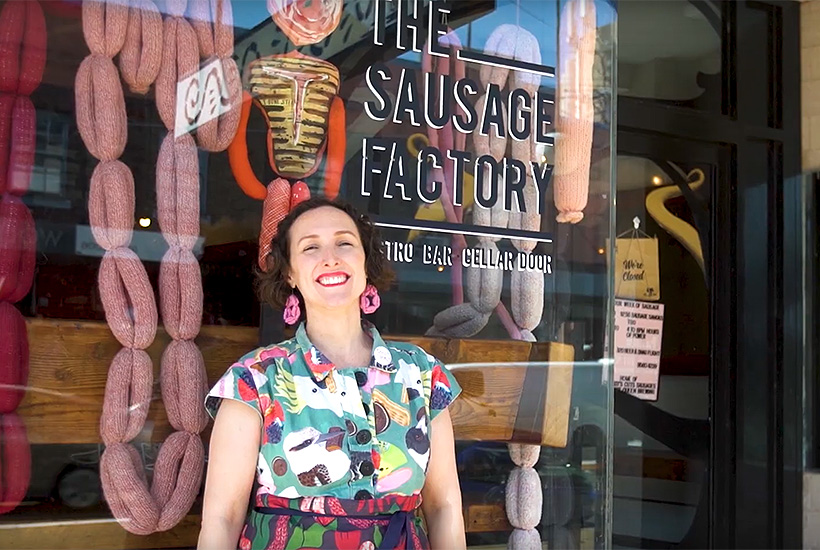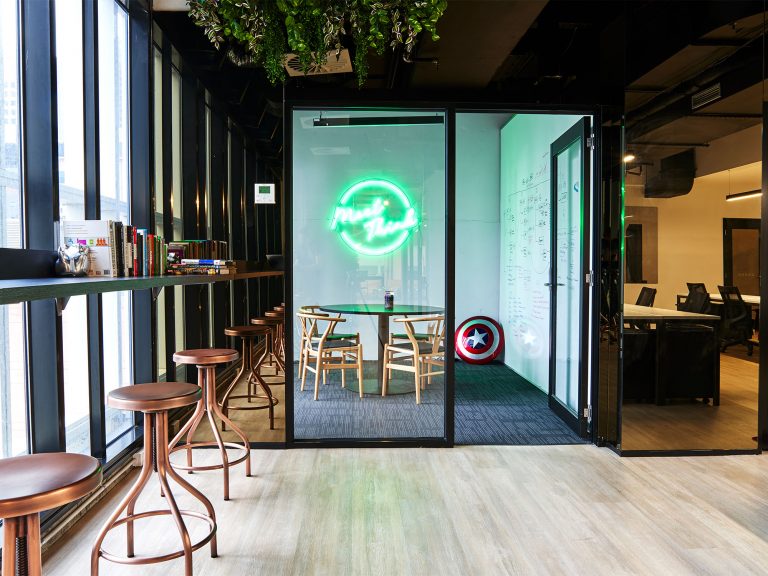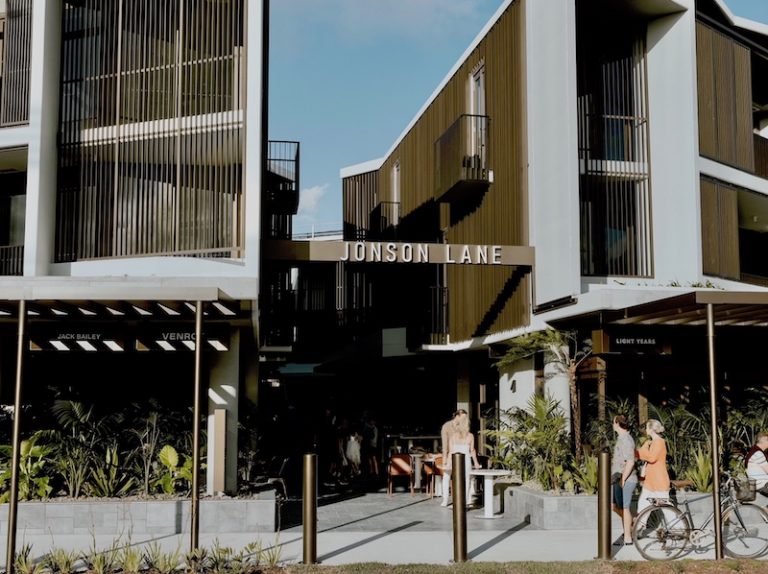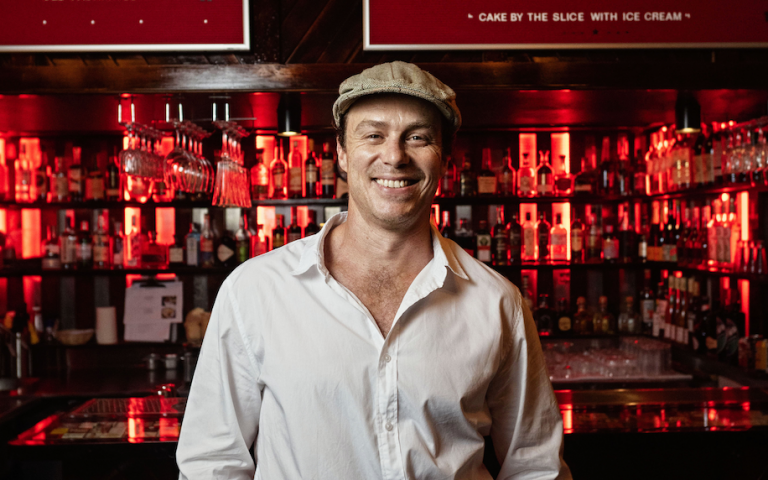Sydney sausage queen’s recipe for small business success

By day, she’s a NSW Government advisor.
But in her spare time she’s Sydney’s sausage queen – driving a retail revolution that’s attempting to change the way people think about the good old fashioned Australian ‘snag’.
Chrissy Flanagan is the brains, heart and soul behind Chrissy’s Cuts – a gourmet sausage company based in Sydney’s inner west that has its origins in 2015 and has since gone from strength to strength on the strength of its offering: sausages that are made 100% from meat, with none of the other additives or ‘unknowns’ that sometimes find their way into sausages.
So how does a full-time corporate worker wind up opening a sausage retail store (Dulwich’s The Sausage Factory) and production space, and what lessons did she learn along the way?
Flanagan shares some tips for other small business owners who might be considering taking the plunge.
PICK THE RIGHT AREA
Choosing the right location wasn’t just about finding foot traffic when Flanagan was seeking out a premises for Chrissy’s Cuts and The Sausage Factory.
It was about trying to identify an area that wasn’t yet established as a major ‘foodie’ destination, but had the potential to be in future years.
For Flanagan, it’s a decision that’s been nothing short of a winner.
“Dulwich Hill is an area in a bit of a transition, so that was a little bit of a gamble in itself,” she recalls.
“You could move to somewhere with an established food reputation like Newtown, but I had identified Dulwich Hill as being a place that was thirsty for more places and had a demographic that was looking for increasingly high end dining and drinking options. That decision has paid off in spades and is increasingly paying off as the demographic shifts.”
BE STRATEGIC WITH YOUR SETUP
The reality for many small businesses is that if they want to expand quickly, they often need to seek external funding.
But for Flanagan, knowing exactly what she wanted her business to be ensured she was was able to fund it herself and retain full control.
She says she’s achieved that by continuing to work full-time through the business’ early years, which has removed the financial pressure of requiring the shop to generate big profits immediately.
“By being my own funding source, I don’t have to compromise on the product or vision,” she says.
“I think that the model of having a day job and a business that you work on the rest of the time is an emerging model because Sydney is very, very expensive. Very few people are in a position to go, ‘Oh God, I’ve got an awesome business idea. I’m just going to quit my job and work on it’.”
“It’s like a real safety net. You have a better chance at success because one bad decision doesn’t kill you – you’ve got a buffer.”

Inside The Sausage Factory at Dulwich in Sydney’s western suburbs.
CREATE A MARKET FOR YOUR PRODUCT
One of the greatest challenges Flanagan faced was establishing a reputation in the sausage market itself, which has long-established roots and particular ways of doing things.
“I think coming from outside can be very difficult to break into an entrenched industry. And the meat industry is singularly insular. People are really born into meat industry. So when I started calling around to wholesalers, people were literally asking me who my husband or father was,” she says.
“Some meat suppliers just flat out refused to sell me a bulk pork shoulder because they were like, “No, pork shoulder should not be in sausages. It’s wrong’.”
“I was like, please take my money.”
Instead she took a different approach, targeting a small section of the market that was seeking a higher quality sausage, and also cultivating a following among people who traditionally avoided sausages.
TEST YOUR MARKET
Flanagan says the mistake many small business owners make is not putting the time into market research before they launch their big idea.
“There’s just no limit to how much market testing you can and should do,” she says.
“Don’t make assumptions about what you believe is important, and don’t do something just because you wanted to have a business doing that particular thing. It should only be because you’ve actually established that there’s a gap in the market for it.”

The Sausage Factory churns out around 4000 sausages every week.
WHAT’S YOUR ANGLE?
Is there something that differentiates you from your competitors?
Flanagan says that without a point of difference, small businesses stand little chance.
“People who have normal-ish jobs come to me and say, for example, ‘I want to have a jam business’. One guy said he liked making jam and wanted to turn it into a business. I was like, yeah, but what is your angle?”
“There are already a lot of jam businesses. And if it’s just that you like making jam and your friends like your jam, you’re really going to need to think that through pretty thoroughly because you have to displace someone else in order to be successful. It’s going to be hard to grow the jam-buying pie.”
PASSION IS EVERYTHING
Flanagan believes that for start-up small businesses to be successful, it has to mean everything to you.
“If you can be happy NOT doing it, then don’t do it because it does turn your entire life upside down. Everyone that you care about has to be extremely understanding, or it’s a big problem. You’re everyone’s worst friend and family member,” she says.
“If you’re not absolutely obsessed by it, then you’re not going to succeed. And, if you don’t succeed then that’s just a very painful memory. There are only two ways through small business, which is success or failure. It’s actually just as simple as that. And if you’re not going to give it absolutely everything, then it’s probably not going to work out.”







